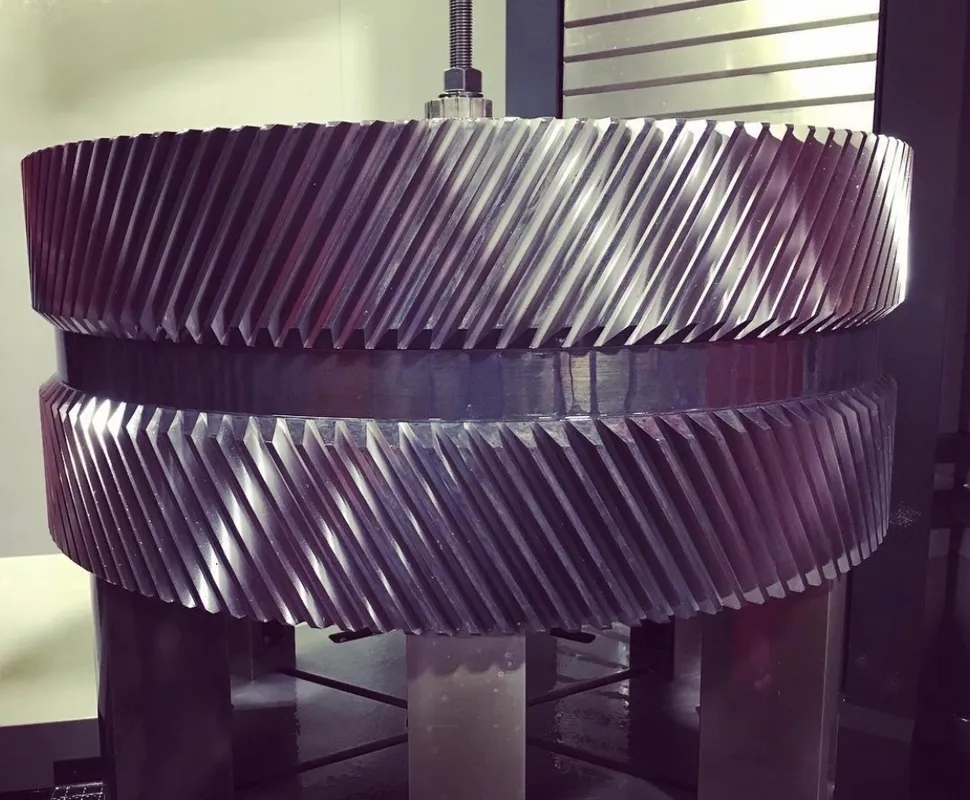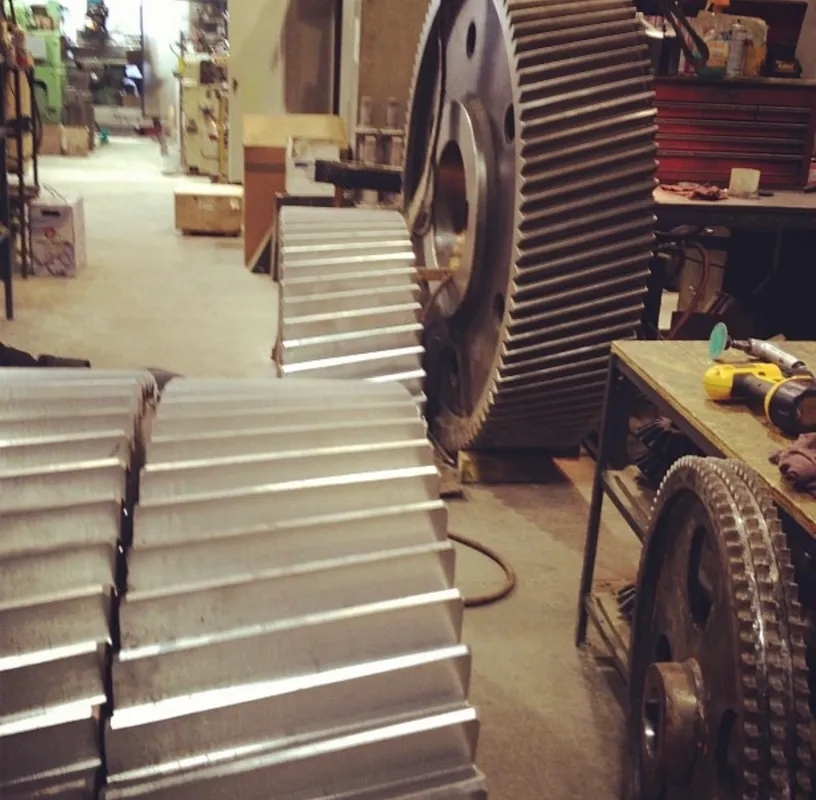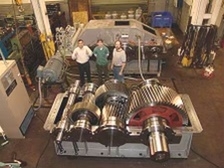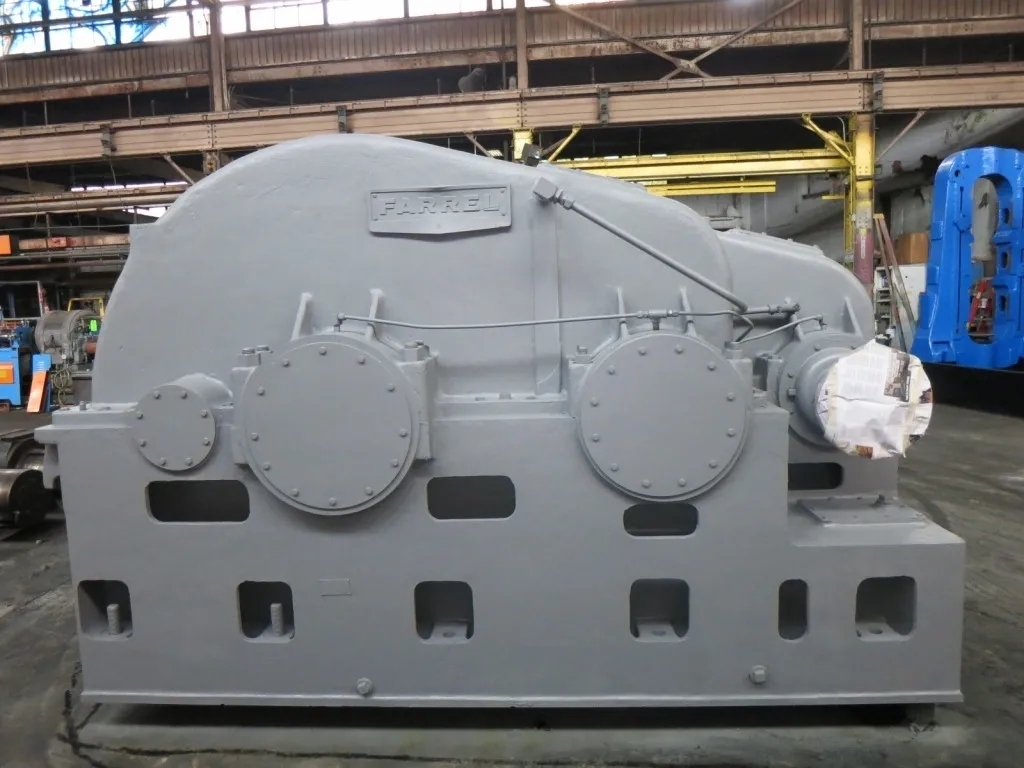

The frequency at which electrodes should be replaced in a wire mesh welding machine largely depends on the usage and the type of electrodes being used. In general, it is recommended to replace electrodes every 3 to 6 months for optimal performance and to prevent any potential issues that may arise from worn-out electrodes.
Signs that indicate the electrodes in a wire mesh welding machine need to be replaced include inconsistent weld quality, increased spatter, difficulty in striking an arc, and visible signs of wear such as pitting or cracking on the electrode surface. It is important to regularly inspect the electrodes to ensure they are in good condition.
Tompkins County poised for manufacturing boom with Menlo Micro and Micron investments “Menlo Micro announced a significant investment of over $50 million to establish a fabrication facility in Lansing, near Ithaca, New York, signaling a major boost for the local manufacturing workforce.” Read more Plug Power wins $75 million grant from DOE “The Latham hydrogen … NYS Manufacturing and Tech News 3.11.24 Read More »
Posted by on 2024-03-15
We continue our blog series on the great work of our New York State assets in Advanced Materials across the state. This week, we feature the work of Rensselaer Polytechnic Institute (RPI) in Troy, NY, and their work on next generation building technology with an aim to decarbonize the built environment. This includes working with … Advanced Materials Strengths and Assets in NYS: Focus on Rensselaer Polytechnic Institute Read More »
Posted by on 2024-02-28
Embark on an enlightening exploration of New York’s economic transformation with special guest Alyson Slack from MRB Group, as we uncover the past and present of the state’s manufacturing sector. Together with FuzeHub’s Steve Melito we chart the course from a robust production history to a burgeoning service-oriented economy, all while acknowledging manufacturing’s lasting contributions … Podcast: Building Better Economies Read More »
Posted by on 2024-03-18
New $25M beauty manufacturing and innovation hub for Black- and women-owned businesses coming to Brooklyn Navy Yard “The Brooklyn Navy Yard is set to be home to a new $25 million state-of-the-art manufacturing, incubator, and accelerator facility focused on helping Black- and women-owned health and beauty businesses launch and grow in New York City.” Read … NYS Manufacturing and Tech News 3.4.24 Read More »
Posted by on 2024-03-08
In our third feature in our New York State Assets blog series on Advanced Materials, we focus on the groundbreaking work at the University at Buffalo. Their Department of Materials Design and Innovation focuses on accelerating lab discoveries into practical engineering applications. They are pioneering new approaches in material science education and research, leveraging technologies … Advanced Materials Strengths and Assets in NYS: Focus on University at Buffalo Read More »
Posted by on 2024-03-06
Specific types of electrodes may be required for different wire mesh welding machines based on factors such as the material being welded, the welding process being used, and the machine specifications. It is essential to consult the machine manual or a welding expert to determine the appropriate electrodes for your specific machine.

The electrode replacement process can typically be done by the machine operator with proper training and guidance. However, in cases where specialized tools or technical knowledge are required, it may be advisable to seek the assistance of a professional technician to ensure the electrodes are replaced correctly.
When replacing electrodes in a wire mesh welding machine, it is important to follow safety precautions to prevent any accidents or injuries. This includes wearing appropriate protective gear such as gloves and safety glasses, ensuring the machine is turned off and disconnected from power, and handling the electrodes with care to avoid any mishaps.

The average lifespan of electrodes used in wire mesh welding machines can vary depending on factors such as the type of electrodes, the welding process, and the operating conditions. Generally, electrodes can last anywhere from a few weeks to several months before needing replacement.
To extend the lifespan of electrodes in a wire mesh welding machine, it is recommended to follow proper maintenance practices such as keeping the electrodes clean and free of debris, storing them in a dry and cool environment, and avoiding excessive heat or moisture exposure. Regularly inspecting the electrodes for signs of wear and replacing them as needed can also help prolong their lifespan and ensure optimal welding performance.

The company specializes in providing maintenance and repair services for a wide range of CNC milling machines, including popular models such as Haas VF-2, Mazak VCN-530C, and Okuma MB-5000H. Our team of experienced technicians is trained to work on various brands and configurations of CNC milling machines, ensuring that each machine is serviced with precision and expertise. Whether it's troubleshooting electrical issues, calibrating spindle speeds, or replacing worn-out parts, our technicians have the knowledge and skills to handle any maintenance or repair task efficiently. With a focus on quality service and customer satisfaction, the company is dedicated to keeping CNC milling machines running smoothly and efficiently for optimal performance.
The time it takes to repair a conveyor belt can vary depending on the extent of the damage and the availability of replacement parts. In general, minor repairs such as fixing small tears or replacing individual rollers can be completed in a matter of hours. However, more extensive repairs such as replacing the entire belt or repairing the motor can take several days to complete. Factors such as the size of the conveyor belt, the complexity of the repair, and the expertise of the maintenance team can all impact the overall repair time. Additionally, scheduling constraints and the need to order specialized parts can also contribute to delays in the repair process. Overall, it is important to assess the specific repair needs of the conveyor belt in order to determine a realistic timeline for completion.
Industrial oven repair technicians are highly skilled in servicing a wide range of specific models, including convection ovens, batch ovens, and continuous ovens. These professionals have expertise in repairing various components such as heating elements, temperature controls, and conveyor systems. They are trained to troubleshoot issues related to overheating, uneven cooking, and electrical malfunctions. Additionally, they are knowledgeable in performing preventive maintenance to ensure optimal performance and longevity of industrial ovens. With their specialized training and experience, industrial oven repair technicians can effectively diagnose and fix problems in specific models to keep production processes running smoothly.
When it comes to handling repairs for pneumatic systems in manufacturing equipment, the maintenance team typically follows a systematic approach. First, they diagnose the issue by conducting a thorough inspection of the system, checking for leaks, blockages, or damaged components. Once the problem is identified, they proceed to replace or repair the faulty parts, such as valves, cylinders, or hoses. It is crucial to use the correct tools and equipment to ensure the repairs are done accurately and efficiently. Additionally, regular maintenance checks and preventive measures are implemented to prevent future breakdowns and optimize the performance of the pneumatic system. Overall, a proactive and meticulous approach is essential in maintaining the functionality and reliability of pneumatic systems in manufacturing equipment.